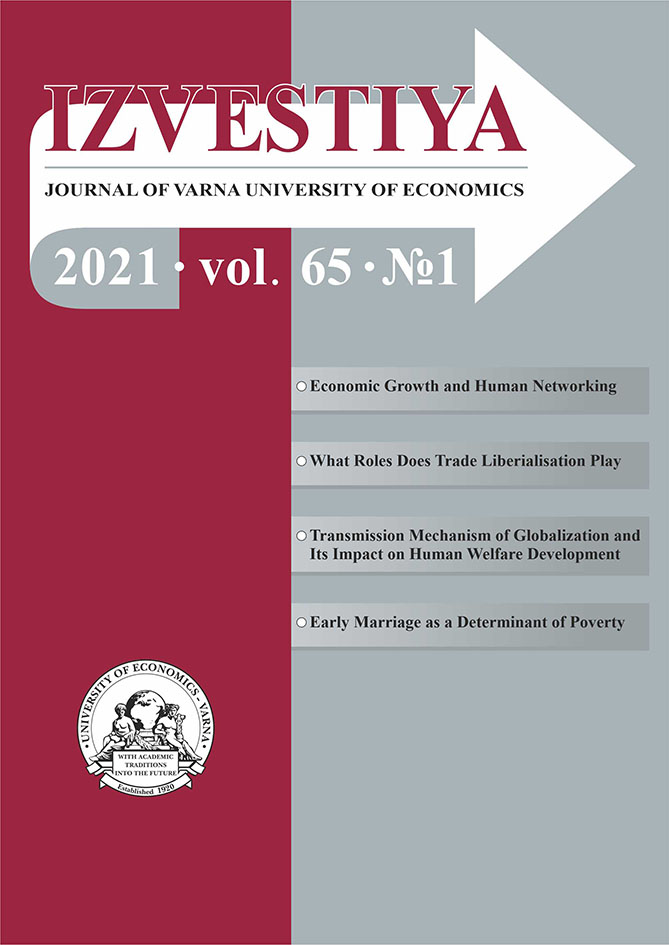Early Marriage as a Determinant of Poverty in Nigeria
Early Marriage as a Determinant of Poverty in Nigeria
Author(s): Adenuga Fabian Adekoya, Gbenro Matthew SokunbiSubject(s): Economy, National Economy, Socio-Economic Research
Published by: Икономически университет - Варна
Keywords: early marriage; poverty; social welfare
Summary/Abstract: A greater percentage of women in eveloping countries married before their 18th birthday. Early marriage serves as a threat to a child's future development. This is because it is difficult to have access to quality education and higher education, and it limits the ability to secure a good job. Also, girls involved in early marriage face acute poverty conditions. This research examined the link between early marriage and poverty in Nigeria. Annual data is sourced from 1970 to 2017. Granger causality is used to determine the nature of causality. Autoregressive Distributed Lagged Model is further used to estimate the data. The result showed that a bi-directional Granger causality exists between early marriage and poverty as well as for low-income and early marriage. In the long-run estimation, early marriage, secondary education and low-income increase poverty. Also, social welfare and access to credit facilities reduce poverty. The policy makers are therefore encouraged to improve social welfare for girls in early marriage and provide easy access to credit facilities for them to pursue higher education or entrepreneurship skills, in a bid to gradually move them out of poverty.
Journal: Izvestiya. Journal of Varna University of Economics
- Issue Year: 65/2021
- Issue No: 1
- Page Range: 102-119
- Page Count: 18
- Language: English

